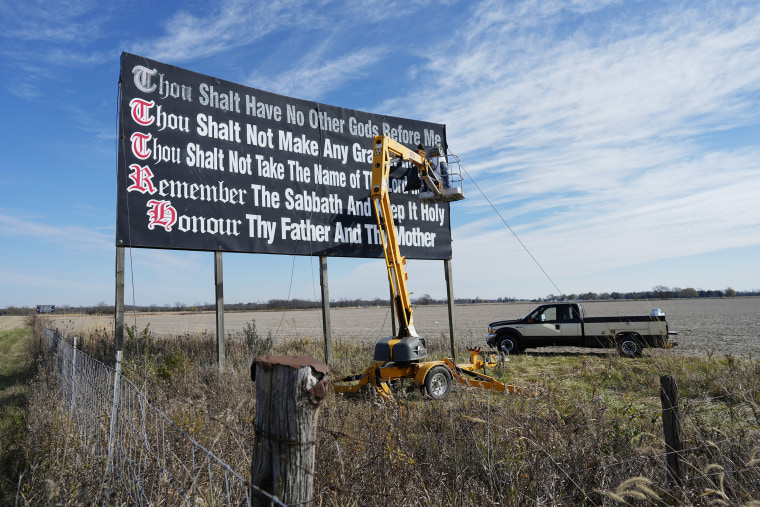BATON ROUGE, La. — Louisiana has become the first state to require that the Ten Commandments be displayed in every public school classroom under a bill Republican Gov. Jeff Landry signed into law Wednesday.
The GOP-drafted legislation mandates that a poster-size display of the Ten Commandments in a “large, easily readable font” be in all public classrooms, from kindergarten to state-funded universities.
Opponents question the law’s constitutionality, warning that lawsuits would be likely to follow. Proponents say that the purpose of the measure is not solely religious but that it has historical significance. In the law’s language, the Ten Commandments are described as “foundational documents of our state and national government.”

Civil liberties groups announced later Wednesday that they planned to challenge the law in court. In a joint statement, Americans United for Separation of Church and State, the American Civil Liberties Union, the ACLU of Louisiana and the Freedom from Religion Foundation said that "the law violates the separation of church and state and is blatantly unconstitutional."
"The First Amendment promises that we all get to decide for ourselves what religious beliefs, if any, to hold and practice, without pressure from the government," the statement said. "Politicians have no business imposing their preferred religious doctrine on students and families in public schools."
The displays, which will be paired with a four-paragraph “context statement” describing how the Ten Commandments “were a prominent part of American public education for almost three centuries,” must be in place in classrooms by the start of 2025.
The posters would be paid for through donations. State funds will not be used to implement the mandate, based on language in the legislation.
The law also “authorizes” — but does not require — the display of the Mayflower Compact, the Declaration of Independence and the Northwest Ordinance in K-12 public schools.
Similar bills requiring that the Ten Commandments be displayed in classrooms have been proposed in Texas, Oklahoma, Utah and other states. However, with threats of legal battles over the constitutionality of such measures, no state besides Louisiana has made the bills law.
Legal battles over displaying the Ten Commandments in classrooms are not new.
In 1980, the Supreme Court ruled that a similar Kentucky law was unconstitutional and that it violated the establishment clause of the U.S. Constitution, which says Congress can “make no law respecting an establishment of religion.” The high court found that the law had no secular purpose but rather served a plainly religious purpose.
Louisiana’s controversial law, in a state ensconced in the Bible Belt, comes during a new era of conservative leadership in the state under Landry, who replaced two-term Democratic Gov. John Bel Edwards in January.
The GOP also has a two-thirds supermajority in the Legislature, and Republicans hold every statewide elected position, paving the way for lawmakers to push through a conservative agenda during the legislative session that ended this month.
